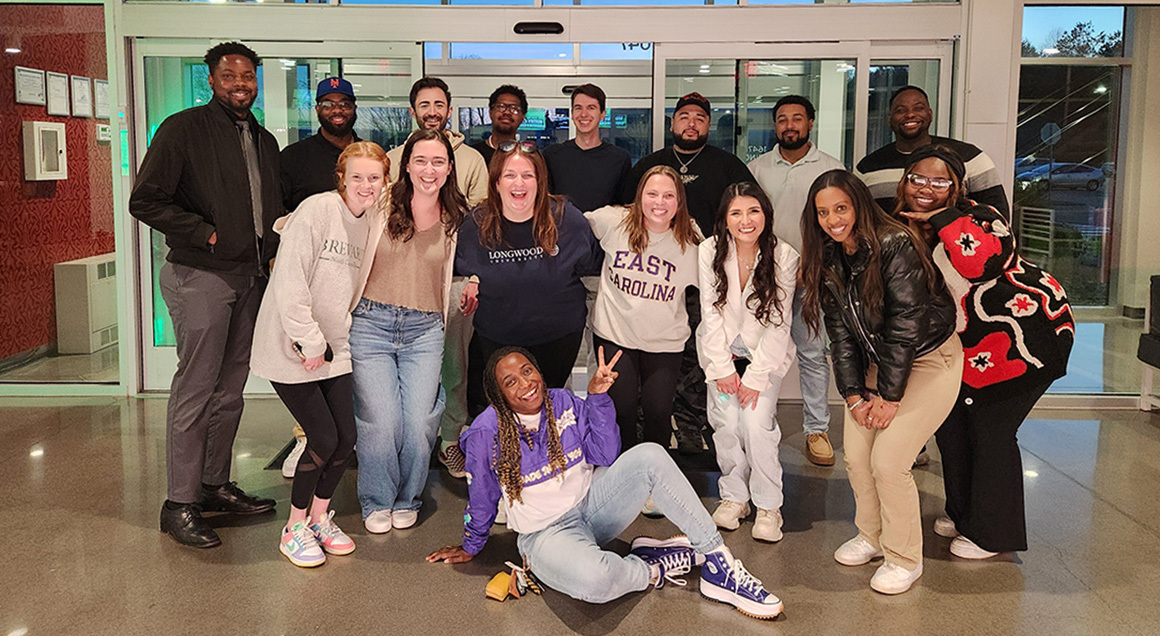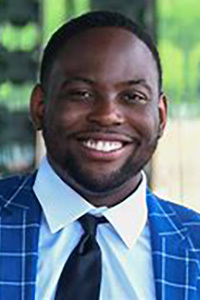Discipleship in the Twenty-First Century: From Informational Memberships to Transformational Relationships
By Bayo Ogungbade

When I was a much younger follower of Christ, I was a part of a congregation that offered many different discipleship-oriented opportunities: Sunday school, Bible studies, youth group, small groups—everything. Back then, I took many of those ministries for granted, mainly due to external factors, such as the median age and racial demographics of the classes. I struggled with feelings of inferiority and worried that I wouldn’t be able to keep up theologically with the many Bible scholars in our congregation. I worried that my diverse perspective and how my faith formed me wouldn’t be received or understood because my life experiences differed from the vast majority of my church community. Many of these fears and prejudgments prevented me from getting connected to the discipleship ministries at my home church. I held on to many of those limiting beliefs for a long time. Back then, I was more worried about my lack of information ABOUT Jesus, instead of my relationship WITH Jesus. If your story sounds anything like mine, let me assure you that you’re not alone in figuring out what it means and what it looks like to model your life as a disciple of Jesus Christ. However, let me share some good news: your story doesn’t have to end here.
Many of the discipleship woes I struggled with as an adolescent helped inform my approach to discipleship as the associate pastor of adult discipleship at Reveille United Methodist Church in Richmond, Virginia. Reveille UMC is a large, urban, United Methodist congregation that boasts a number of discipleship opportunities, from children’s ministries to senior adult ministries. We have seven thriving adult Sunday school classes that meet on Sunday morning and many different small groups and covenant-based communities for men and women. We also have a flourishing “one-stop-shop” for matters pertaining to discipleship on Sunday afternoons. We have many different offerings on Sunday afternoons for children, youth, adults, and seniors to get involved in at Reveille. We also have a daily devotional program called the GPS, which comes with scripture and applicable challenges to put faith in action.
Reveille is blessed to be in a position to reach just about every significant age group across the spectrum and provide members with opportunities to engage in authentic, transparent, and genuine fellowship and community with their fellow siblings in Christ. At Reveille, we focus our efforts and mission on three significant areas: welcome and inclusion, discipleship, and the Hub. Each area is important to the work at Reveille, and each builds on the other. In the body of Christ, each member has its purpose, but all work together as members of the same body. (See 1 Corinthians 12:12.)
Regarding discipleship, our vision statement reads,
Because we believe faith is a lifelong commitment and journey of growing closer to God and neighbor, we will take intentional steps to deepen our relationship with Christ so that, as transformed people, we share and multiply the love and grace of God into the world.
This definition has helped us ground ourselves around what’s most important as followers of Christ: intentionality, relationship, and multiplication. (See Vision—Reveille.)
As Reveille’s discipleship pastor for the last two and a half years, I’ve encouraged our leaders to lead their communities in line with these three principles, especially the relationship principle. I believe that a relationship-first approach to discipleship will break down barriers and reach beyond our borders, so all people can experience the good news of Jesus Christ. Our church has had to take a hard look at itself and have some uncomfortable conversations about how our church’s culture and traditions were centered around highly informational and cerebral-based approaches to discipleship. This challenge isn’t unique to Reveille. If our discipleship renews the mind but doesn’t compel the heart, how can we truly be the hands and feet of Jesus Christ? To be disciples of Jesus Christ, we must know Jesus Christ; to know Jesus Christ is to understand how much he valued relationships. Jesus cared for his Father, his disciples, and Jews and Gentiles. Jesus cared for his enemies. Jesus cared for ALL. Everything that Jesus did, said, taught, and embodied was rooted in his unwavering mission to reconcile us into a relationship with God so we can all experience the unconditional love that God’s grace provides.
Information is important, but information can’t be the only means we allow ourselves to experience transformation. Information must be paired with relationships. This is where we can experience true discipleship alongside our neighbors in our efforts to be more intentional followers of Jesus Christ. When relationships become primary, we can move beyond superficial conversations and move toward understanding who God has made us to be—disciples of Jesus Christ who seek to make more disciples of Jesus Christ for the transformation of the world. This understanding has helped me in my discipleship and has helped me to see that my testimony can help others. My greatest dream for discipleship is that all disciples of Jesus Christ will seek to learn more about why Jesus did what he did and how we can embody his attitude and actions. This is my prayer for the twenty-first-century church, as we continue to discern how to reach the next generation and invite them into a lifelong, everlasting, and unconditionally loving relationship with the one who loves us beyond all reason and doubts. This is where we can all experience true transformation.
When relationships become primary, we can move beyond superficial conversations and move toward understanding who God has made us to be—disciples of Jesus Christ who seek to make more disciples of Jesus Christ for the transformation of the world.
Questions to ponder:
- How does your church define discipleship? Is that definition rooted in relationships as much as it is in information?
- Do your adult discipleship ministries reflect the diversity (age, race, culture, experience) of your surrounding community? If not, why not?
- What steps is your church taking to ensure every person has an opportunity to be seen, known, and discipled in a relational way?

Rev. Bayo Ogungbade serves as associate pastor of adult discipleship at Reveille United Methodist Church in Richmond, Virginia. A graduate of Virginia Commonwealth University and Union Presbyterian Seminary, Bayo is the founder and leader of Reveille's young adult community, Vibrant Life. He is passionate about discipleship, church planting, and innovative ministry. The proud son of Nigerian immigrants, Bayo enjoys meeting new people, traveling, and exploring new foods. Reach him at [email protected].
Contact Us for Help
Contact Discipleship Ministries staff for additional guidance.
